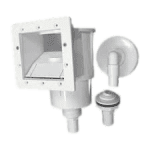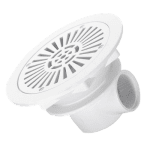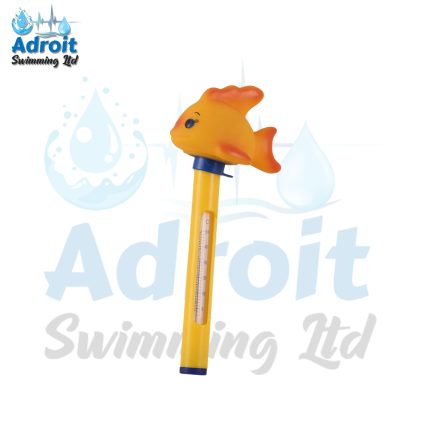Thermometer
A thermometer is an instrument designed to measure temperature, providing accurate readings for a wide range of applications, including household, medical, industrial, and environmental use. Whether used to monitor body temperature, weather conditions, or water temperature in swimming pools and aquariums, thermometers are essential tools for understanding and controlling temperature in various settings. Thermometers come in multiple types, each with its unique design, precision, and usage purposes, including digital, infrared, mercury, and dial thermometers.
Swimming Pool Thermometer: Essential for Optimal Pool Enjoyment
A swimming pool thermometer is a crucial tool for any pool owner or enthusiast, providing essential data about water temperature to ensure a comfortable and safe swimming environment. Understanding and maintaining the appropriate water temperature is vital for maximizing enjoyment, enhancing safety, and ensuring the longevity of pool equipment. This article explores the types, features, benefits, and maintenance of swimming pool thermometers, offering insights into their importance in pool care.Purpose of a Swimming Pool Thermometer
The primary purpose of a swimming pool thermometer is to accurately measure the water temperature in a pool. This information is critical for several reasons:- Comfort: Water temperature significantly affects the comfort level of swimmers. Maintaining a comfortable temperature enhances the swimming experience, encouraging longer swims and more enjoyable leisure time in the pool.
- Safety: Knowing the water temperature is essential for safety, especially for children, elderly individuals, or those with specific health conditions. Water that is too cold can lead to hypothermia, while excessively warm water can cause overheating or dehydration.
- Equipment Efficiency: Many pool heating systems and maintenance routines rely on accurate temperature readings. Understanding the water temperature helps pool owners optimize their heating systems, saving energy and extending the life of the equipment.
- Chemical Balance: Water temperature can influence the effectiveness of pool chemicals, including chlorine and algaecides. Monitoring temperature helps maintain proper chemical balance, ensuring a clean and safe swimming environment.
Types of Swimming Pool Thermometers
There are several types of swimming pool thermometers available, each with unique features and benefits:- Floating Thermometers: These are the most common type of swimming pool thermometer. Floating thermometers typically feature a buoyant design that allows them to float on the water's surface. They are easy to read, with large, clear numbers visible from the pool deck.
- Digital Thermometers: Digital thermometers provide precise temperature readings and often come with additional features such as backlit displays, memory functions, and the ability to measure air temperature as well. These thermometers can be used for both indoor and outdoor pools and are usually powered by batteries.
- Infrared Thermometers: These non-contact thermometers measure the temperature of the water without needing to be submerged. By pointing the infrared sensor at the water's surface, users can obtain instantaneous temperature readings. This type is particularly useful for large pools or spas where traditional thermometers may be difficult to read.
- Submersible Thermometers: Designed to be submerged in the water, these thermometers provide accurate readings from within the pool. They may be attached to the pool wall or installed as part of the pool’s plumbing system, ensuring consistent temperature monitoring.
- Wireless Thermometers: Wireless models utilize sensors placed in the pool to transmit temperature data to a display unit located on the pool deck or indoors. These thermometers offer convenience, allowing for easy monitoring without the need to approach the water.
Benefits of Using a Swimming Pool Thermometer
- Enhanced Comfort: By allowing swimmers to know the water temperature, thermometers help maintain an enjoyable swimming environment. This is particularly important for families with children, ensuring that the water is always at a comfortable temperature.
- Improved Safety: Regularly monitoring water temperature helps identify unsafe conditions, preventing accidents related to hypothermia or overheating. This awareness is especially crucial for vulnerable individuals who may be more susceptible to temperature fluctuations.
- Energy Efficiency: Knowing the water temperature helps pool owners manage their heating systems more effectively. By ensuring the pool is heated only when necessary, users can reduce energy consumption and save on utility bills.
- Optimal Chemical Management: Accurate temperature readings help pool owners adjust chemical levels appropriately. This ensures the pool remains clean and safe for swimming, preventing algae growth and bacterial contamination.
- Easy Monitoring: Many modern thermometers feature user-friendly designs, such as large displays and easy-to-read measurements. This makes it simple for anyone to monitor pool conditions without specialized knowledge.
Features to Look for in a Swimming Pool Thermometer
When selecting a swimming pool thermometer, consider the following features:- Accuracy: Ensure the thermometer provides accurate readings, typically within ±1°F or ±0.5°C, to maintain proper pool conditions.
- Ease of Use: Look for a thermometer with a user-friendly design, such as clear numbers or digital displays, making it easy to read from a distance.
- Durability: Choose a thermometer made from high-quality, waterproof materials to withstand the harsh conditions of pool environments.
- Temperature Range: Ensure the thermometer can measure the temperature range typical for swimming pools, usually between 0°F and 120°F (-18°C to 49°C).
- Additional Features: Consider whether you want extra features such as memory storage for tracking temperature changes over time, alerts for specific temperature ranges, or the ability to measure both water and air temperatures.
Maintenance of Swimming Pool Thermometers
Maintaining a swimming pool thermometer is relatively straightforward:- Regular Checks: Regularly check the thermometer for accuracy by comparing it to another reliable thermometer. If discrepancies are found, consider replacing the device.
- Clean as Needed: Depending on the type of thermometer, clean the exterior with a soft cloth to remove any debris or buildup that may interfere with reading accuracy.
- Store Properly: When not in use, store the thermometer in a cool, dry place, especially for digital models with batteries, to prolong their lifespan.
- Monitor for Damage: Inspect the thermometer for any signs of wear or damage, particularly in floating models that may be exposed to harsh conditions.


















